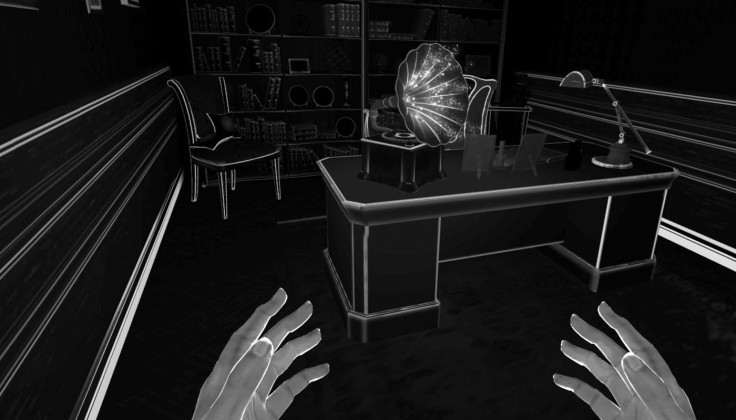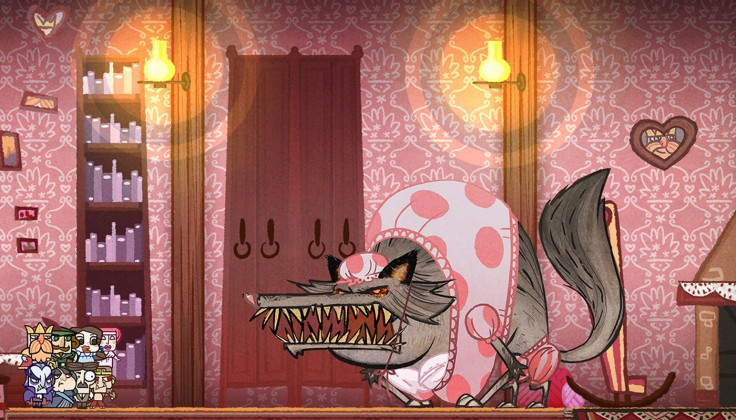How Italy plans to storm the video game industry by giving developers freedom to create
AESVI general secretary Thalita Malago talks to IBTimes UK at Gamescom 2017.
The video game industry continues to grow each year. Billions of dollars pour in as bigger games dominate the landscape, indies continue to flourish thanks to digital distribution and titles retain audiences for longer than ever before. It's an exciting time for both consumers and developers, when anyone could could be working on the next PlayerUnknown's Battlegrounds-sized hit.
How, though, does a nascent local development scene breakthrough and compete with other hotbeds for video game production? That's the task facing Italy's gaming industry and its trade body AESVI.
Trade shows like Gamescom in Germany, which boasted 350,000 visitors for this year's event, are vital for showing off what Italy and many other burgeoning industries have to offer. It's there that IBTimes UK sat down with AESVI general secretary Thalita Malago to discuss Italy's place in the industry and its plans for growth.
How has the Italian game industry grown in recent years? And how do you plan to continue to grow?
Thalita Malago: I would define the Italian game development scene as an emerging one. Five years ago the sector was quite limited in growth, but since we had a strong growth in the number of game developers operating in Italy. You have to consider that now we count over 120 development studios distributed all around the country.
Milan is the centre of the Italian development scene. All the major game developers are based in that area, such as Milestone or Ubisoft Milan.
What we foresee is that the sector will continue to grow. Both because many developers have proven to be successful in the market and because we as a trade organisation are working a lot with the government to improve the conditions under which our developers work.
Just to give you an example, we are here because five years ago we started lobbying with the government and we were able to get the minister of economics' support to finance an Italian pavilion at Gamescom and also at GDC. Today we are here with 14 game developers, next year we hope we will be there with a huge number of developers. We are also working on a loan, a number of tax breaks and development funds.
Mario + Rabbids: Kingdom Battle was developed in Italy. How is important is it for you to attract these kinds of massive projects, and how important is Ubisoft Milan to you generally?
I believe that this project is extremely important for our country because, first of all, Ubisoft Milan is the only multinational in the video game sector with a local development studio in Italy. So, having the Milan offices working on such a title is evidence that Italy is a place where extremely interesting games can be developed and we are a creativity hub. We hope that Ubisoft and other multinationals will consider having development studios in Italy, because we are an extremely creative country, as you can see in the fashion or in the design sector. It is the same for video games.

The case study of Mario + Rabbids also helped us a lot in lobbying with the government, because it's not a simple game, it's very big... on an international level.
Our government recently approved our legislation, according to which Italian developers will have access to tax breaks and development funds. It was made possible because we had Ubisoft Milan showing what could be the potential of developing the sector in Italy.
How are you planning to attract big developers and convince them to open up shop in Italy?
Up to now we haven't done so much because we did not have the instruments to do so. But now the government has approved this loan we will start a campaign to attract foreign companies in Italy. We will be able to show the concrete measures they can have if they develop games in Italy. We will have tax breaks on production and international distribution, and this is quite unique because in other countries you don't have the tax break for international distribution.
We will also have development funds. We have to see how much they will be linked to cultural and artistic aspect, but we at least know that there are development funds. So we will give visibility to these measures as soon as they are defined in detail, to show foreign companies what they can do if they do business in Italy.
Gamescom and Paris Games Week have been huge for Germany. You've got Milan Games Week. How are you planning to expand that show?
The show has seen significant growth since its first edition. We launched the fair in 2011 and this year we will round the seventh edition. We started with 30,000 visitors in the first edition and last year we had over 138,000 visitors. This year, in late September, we are expecting to have over 150,000 participants. It's a huge number.
Of course for us it's not the arrival point but a starting point for the growth of the fair. We are working on a number of directions to grow the event. First we are working on the Italian game developers, we have a very big stand for Italian game developers in Milan Games Week. This year we have more than 50 game developers showcasing their games. We are working also on the esports. So this year there will be a very big esport event. We hope to attract international competitions to Italy. Third, we are working on international guests. So for example this year we have Tim Schafer coming and opening the Milan Games Week conference.

The UK government has invested in teaching coding in schools, and that's been very well received by the gaming community. Are there any similar plans in Italy?
Yes. The Italian Parliament, more or less two years ago, approved a national plan for digital schools. Where they defined some pillars to be followed to improve the digitalisation of schools in Italy. They put some funds available to schools to have a better digitalisation process. We are part of a coalition that is currently working to implement this plan and to find solutions to modernise schools.
What we offer the ministry is coding sessions with developers. They are also interested in education to be entrepreneurs, to become entrepreneurs in the video game sector. Also, there are sessions on the responsible use of video games.
These are the different fields where we are working: coding, training and mentorship for students who want to work in the business and responsible use of games.
Big international projects are great, but how important is it to encourage games that reflect the culture and heritage of Italy?
You know better than me that developers are very creative in general. Not only in Italy, they are creative everywhere. They are very creative and they do not like to have constraints on creativity.
So on the one hand it is important to use the cultural heritage of Italy to develop different games. On the other hand, we do not want to limit the creativity of our developers, because we believe that in every country you can develop content that is universal and has an international reach.
Last year a project was launched called Italian Video Game Programme, and this project is run by five guys that are creating a database of locations in Italy, or stories, that could be used for development of video games. The minister of culture has shown an interest to use this database, to raise the profile of Italy as a possible location of video game development.
Does Brexit pose any opportunities for you, should the British game industry be negatively impacted?
I don't think so because the UK is such a strong market and country for game development, and Italy is such in a start-up phase. So I do not believe that Brexit will have an impact on Italy. I probably believe that Brexit will have an impact on Italian game developers working in the UK, maybe. and this is a pity because we have a lot of Italian people working in the UK. I don't think it will have an immediate impact that we can benefit from this situation.

© Copyright IBTimes 2025. All rights reserved.






















